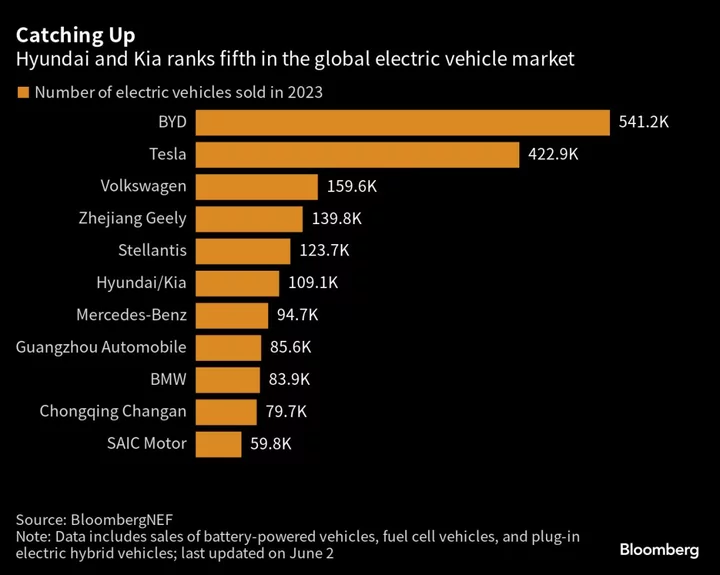
Russia fines Telegram and Viber over war-related content
The companies behind the Telegram and Viber messaging apps were fined by a Moscow court on Tuesday for
1970-01-01 08:00

What is egg freezing and how does it work?
New figures show a dramatic rise in the number of women deciding to freeze their eggs. A report from the Human Fertilisation and Embryology Authority (HEFA) found that egg and embryo freezing are now the fastest growing fertility treatments in the UK. Egg freezing and storage saw a 64% rise between 2019 and 2021 – increasing from 2,576 cycles to 4,215 completed. What is egg freezing? It’s where a woman’s eggs are extracted and frozen immediately for fertilisation at a later date. Gynaecologist Dr Larisa Corda said it’s a “means of helping preserve fertility for the future”. Freezing the eggs at the point of extraction means they avoid the decline in quality that’s associated with ageing. “It essentially means that a woman becomes her own egg donor later in life, when she decides she wishes to have children,” she said. What’s the process? “It involves the same sort of procedure as the first part of IVF, where a woman takes injections to stimulate her ovaries, to encourage follicles to grow and lead to egg maturation over several days. “After that, the eggs are collected via a simple surgical technique using a needle placed into the vagina and then into the ovaries, to aspirate the eggs which are there,” Corda said. The daily injections (usually for eight to 11 days) involved in the first part of the process is to encourage the ovaries to produce more eggs. “They may be uncomfortable and lead to side-effects like bloating, abdominal pain, nausea, headaches and other hormonal symptoms, such as breast soreness and changes to your mood,” she added. Women are usually put to sleep for the egg retrieval, during which, a long needle is inserted into the vagina to reach the ovaries and remove the fluid in each follicle that contains an egg. “This is all done under direct ultrasound guidance and normally takes around 30 minutes. You will not feel anything during the procedure, but afterwards, you may have some cramps and a bit of bleeding, which all normally settles down within 24-48 hours.” How many eggs are usually frozen each time? It really depends how many are produced by the patient at the time. Corda said the number of eggs doesn’t give a good indication on the quality though – which is only revealed after the eggs are fertilised to create embryos further down the line, when the woman or couple want to try to have a baby. “Because of this reason, women are advised to freeze between 10-15 eggs, to give themselves a good, reasonable chance. This may involve doing several rounds of egg freezing, but there’s no guarantee of success,” she said. The aim varies depending on the clinic though, and the “numbers needed when older become much more unpredictable, and it also becomes much harder to get a good number of eggs too”. What’s the success rate? The success rates are dependant on age and the quality of the eggs. “Not surprisingly, the highest live birth rates from previously frozen eggs are shown to come from women who undergo the procedure before they are 30,” she noted. “However, the average age at which women freeze their eggs is around 37, with many women closer to 40 by the time they consider doing this.” She said it’s generally agreed that the best time is before age 36, when most women’s eggs are still a sufficient quality and you’re more likely to use them in the future (as opposed to someone age 25 and more likely to fall pregnant without medical assistance). It’s important to know that some eggs won’t actually make it, even if they were fine at the freezing stage. Dr Suvir Venkataraman, from the Harley Street Fertility Clinic, added: “For a good prognosis patient, i.e. under 35 with no known fertility issues, roughly 90% of eggs survive freezing and thawing by vitrification. “Approximately 70% of those will be fertilised by good sperm to create embryos. Approximately 50% of those embryos will develop well. And there’s approximately 30% chance of live birth per embryo transferred.” How much does it cost? The Human Fertilisation and Embryology Authority (HFEA) estimate the average cost of freezing eggs is £7,000-£8,000 – including medication, storage costs and the later process of thawing and transferring to the womb. But it varies from clinic to clinic. What else should you consider? Arm yourself with all the facts on the costs, and understand it’s not a guaranteed insurance policy for getting pregnant in the future. “It’s important to see a fertility specialist to get assessed before considering egg freezing, as the decline in egg number and quality can start much earlier for some women,” Corda said. “If you’re not sure what clinic to go to, the HFEA website has lots of great and useful information to help you to decide and check out their credentials. “Egg freezing does not offer any guarantees, but for a lot of women, it is the best possible chance of having their own biological children later in life.” Read More Charity boss speaks out over ‘traumatic’ encounter with royal aide Ukraine war’s heaviest fight rages in east - follow live How can you save money on your wedding food? Regular napping could be good for brain health, research suggests Dramatic rise in the number of women freezing their eggs
1970-01-01 08:00

Hyundai Raises 2030 Electric-Vehicle Sales Goal to 2 Million
Hyundai Motor Co. said it will sell 2 million electric vehicles annually by 2030, raising its forecast from
1970-01-01 08:00

United States country profile
Provides an overview of the United States, including key facts about this north American country.
1970-01-01 08:00

Canada Is Betting on Immigration for an Economic Boost: Big Take Podcast
Listen to The Big Take podcast on iHeart, Apple Podcasts, Spotify, Terminal. Despite declining birth rates and aging
1970-01-01 08:00

Powell Faces Tricky Task of Explaining Rate Pause in Congress
Federal Reserve Chair Jerome Powell will have an opportunity this week to clarify what many found a confusing
1970-01-01 08:00

Tottenham consider David Raya alternatives as Brentford talks stall
Tottenham have told David Raya they could walk away from negotiations with Brentford due to their £40m asking price. They are considering other targets such as Giorgi Mamardashvili and Robert Sanchez.
1970-01-01 08:00

Borussia Dortmund expected to beat West Ham to Edson Alvarez
Borussia Dortmund are hoping to finalise a club-record move for Ajax midfielder Edson Alvarez. West Ham had considered him as potential Declan Rice replacement, but he does not want to move to England at this point.
1970-01-01 08:00

Russia renews missile attacks on Ukrainian cities
A wave of attacks is reported on Kyiv and other cities but there are no reports of any injuries.
1970-01-01 08:00

Engine Durability Remains in Focus at Air Show: Paris Update
Aviation executives gathered for a second day at the Paris Air Show, the first time the event takes
1970-01-01 08:00

Regular napping could be good for brain health, research suggests
Regular daytime naps could be good for brain health, new research suggests. Daytime napping could slow the rate at which brains shrink as we age, the study led by researchers at UCL and the University of the Republic in Uruguay found. The researchers hope their findings into the health benefits of sleeping during the day will reduce any stigma that still exists around daytime napping. The study suggests the average difference in brain volume between people programmed to be habitual nappers and those who were not was equivalent to 2.6 to 6.5 years of ageing. Our findings suggest that, for some people, short daytime naps may be a part of the puzzle that could help preserve the health of the brain as we get older Dr Victoria Garfield, UCL Senior author Dr Victoria Garfield, MRC Unit for Lifelong Health & Ageing at UCL, said: “Our findings suggest that, for some people, short daytime naps may be a part of the puzzle that could help preserve the health of the brain as we get older.” The study, published in the journal Sleep Health, analysed data from people aged 40 to 69. Past research has suggested people who have had a short nap perform better in cognitive tests in the hours afterwards than those who did not nap. The new study looked at whether there was a causal relationship between daytime napping and brain health. Researchers looked at 97 snippets of DNA thought to determine people’s likelihood of habitual napping. They compared measures of brain health and cognition of people who are more genetically programmed to nap with people who did not have these changes in DNA, using data from 378,932 people from the UK Biobank study. They found that, overall, people predetermined to nap had a larger total brain volume. The genetic variants – DNA changes – influencing the likelihood of someone to nap were identified in an earlier study looking at data from 452,633 UK Biobank participants. But the researchers did not find a difference in how well those programmed to be habitual nappers performed on three other measures of brain health and cognitive function. Lead author and PhD candidate Valentina Paz, University of the Republic (Uruguay) and MRC Unit for Lifelong Health & Ageing at UCL, said: “This is the first study to attempt to untangle the causal relationship between habitual daytime napping and cognitive and structural brain outcomes. “By looking at genes set at birth, Mendelian randomisation avoids confounding factors occurring throughout life that may influence associations between napping and health outcomes. “Our study points to a causal link between habitual napping and larger total brain volume.” Garfield added: “I hope studies such as this one showing the health benefits of short naps can help to reduce any stigma that still exists around daytime napping.” Read More Charity boss speaks out over ‘traumatic’ encounter with royal aide Ukraine war’s heaviest fight rages in east - follow live Dramatic rise in the number of women freezing their eggs 9 glorious gardens to visit this summer How to keep flying insects out of your home
1970-01-01 08:00

Morocco country profile
Provides an overview of Morocco, including key dates and facts about this north African country.
1970-01-01 08:00
